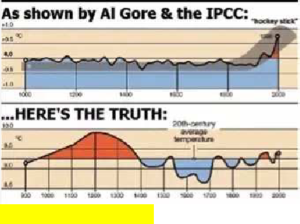by D. Wojick, July 9, 2024 in WUWT
A fine skeptical journal article waded through green pal review. Wonder of wonders!
The journal is the American Journal of Economics and Sociology. The article title is perfectly clear: “Carbon dioxide and a warming climate are not problems”.
See https://onlinelibrary.wiley.com/doi/10.1111/ajes.12579
But it is an “Early View Online Version of Record before inclusion in an issue” so get it before it gets too hot for the Journal. I understand it is very popular so the green screams are deafening.
Alas it is paywalled but the lengthy free Abstract is as clear as the title. Here is the conclusion:
“Observations show no increase in damage or any danger to humanity today due to extreme weather or global warming (Crok & May, 2023, pp. 140–161; Scafetta, 2024). Climate change mitigation, according to AR6, means curtailing the use of fossil fuels, even though fossil fuels are still abundant and inexpensive. Since the current climate is arguably better than the pre-industrial climate and we have observed no increase in extreme weather or climate mortality, we conclude that we can plan to adapt to any future changes. Until a danger is identified, there is no need to eliminate fossil fuel use.”
The authors are Andy May and Marcel Crok and as the first parenthetical reference above indicates they are building on prior work. Their 53 References are not paywalled and quite interesting. Continuer la lecture de Peer reviewed skepticism

